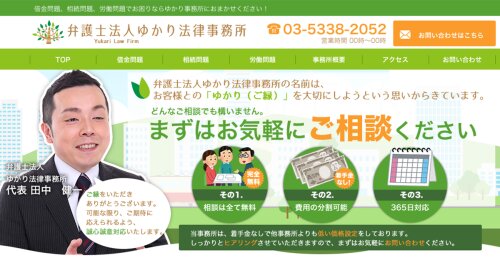Best Child Custody Lawyers in Tokyo
Share your needs with us, get contacted by law firms.
Free. Takes 2 min.
Free Guide to Hiring a Family Lawyer
List of the best lawyers in Tokyo, Japan
About Child Custody Law in Tokyo, Japan
In Tokyo, Japan, child custody laws are meant to protect the welfare and best interests of children following the dissolution of a marriage. Custody can be categorized into two main types: "shinken" (parental authority), which includes decisions about a child's upbringing, and "kangoken" (physical custody), which refers to with whom the child will live. Japanese family law traditionally favors sole custody arrangements over joint custody, meaning one parent is typically granted full custody.
Why You May Need a Lawyer
Individuals usually seek legal counsel in child custody matters when dealing with divorce, seeking to modify an existing custody arrangement, or if facing a parental child abduction situation. If there is a dispute between parents regarding the welfare or the living arrangements of a child, legal advice becomes crucial. An experienced lawyer can help navigate the complexities of custody laws and serve as a negotiator or representative in court, if necessary.
Local Laws Overview
In Tokyo, as is the rest of Japan, after a divorce, custody is awarded as either sole or joint, though sole custody is more common. The court's primary consideration is the child's best interest. Factors may include the child's age, the parent's ability to care for the child, and any history of abuse. The non-custodial parent is often granted visitation rights, but these are not as enforceably stringent as they may be in other countries. The Hague Convention on the Civil Aspects of International Child Abduction is also relevant for international custody disputes and Japan has been a signatory since 2014.
Frequently Asked Questions
1. How is child custody determined in Tokyo?
Custody is determined by either mutual agreement between the parents or, failing that, by a family court decision. The child’s best interest is the primary consideration in such decisions.
2. Can both parents have custody of a child after divorce?
While joint custody is legally possible, in practice, it is rare, and sole custody is the norm in Japan.
3. What are visitation rights like in Tokyo?
Visitation rights in Japan may be less structured than in other countries, with details often left for the parents to decide. In contested cases, the court may specify terms.
4. Can foreign parents get custody in Japan?
Foreign parents can get custody, but the process may be complicated by international law and bilateral agreements.
5. Can a custody decision in Tokyo be appealed?
Yes, custody decisions can be appealed in the family court system. However, it requires adherence to strict legal procedures and timelines.
6. What is the role of a Family Court Investigator in custody cases?
A Family Court Investigator gathers information about the child's life and parental interaction to assist the court in making a decision that reflects the child's best interests.
7. How does domestic violence affect custody decisions in Japan?
Reports of domestic violence are taken seriously and can significantly impact custody decisions, with the court aiming to protect the child from harm.
8. Are there child support obligations in Tokyo?
Yes, the non-custodial parent is often required to pay child support, as determined by the court.
9. Do grandparents have visitation rights?
Grandparents can be granted visitation rights if it's considered to be in the best interests of the child.
10. What should I do if my spouse took our child out of the country?
You should consult with a lawyer immediately. If the move violates custody arrangements, it may be addressed by the Hague Convention if the other country is a member.
Additional Resources
For those seeking further information on child custody in Tokyo, visit the Japan Federation of Bar Associations or the Tokyo Family Court. Additionally, support groups and non-profit organizations focused on the rights of parents and children can be important resources.
Next Steps
If you believe you need legal assistance in a child custody case, the next steps would be to document all matters related to your child's care and education, gather any evidence of your interaction with your child, and seek a lawyer specialized in family law. The lawyer will navigate the complexities of your case and guide you through the process, from negotiations to court procedures if necessary.
Lawzana helps you find the best lawyers and law firms in Tokyo through a curated and pre-screened list of qualified legal professionals. Our platform offers rankings and detailed profiles of attorneys and law firms, allowing you to compare based on practice areas, including Child Custody, experience, and client feedback.
Each profile includes a description of the firm's areas of practice, client reviews, team members and partners, year of establishment, spoken languages, office locations, contact information, social media presence, and any published articles or resources. Most firms on our platform speak English and are experienced in both local and international legal matters.
Get a quote from top-rated law firms in Tokyo, Japan — quickly, securely, and without unnecessary hassle.
Disclaimer:
The information provided on this page is for general informational purposes only and does not constitute legal advice. While we strive to ensure the accuracy and relevance of the content, legal information may change over time, and interpretations of the law can vary. You should always consult with a qualified legal professional for advice specific to your situation.
We disclaim all liability for actions taken or not taken based on the content of this page. If you believe any information is incorrect or outdated, please contact us, and we will review and update it where appropriate.















